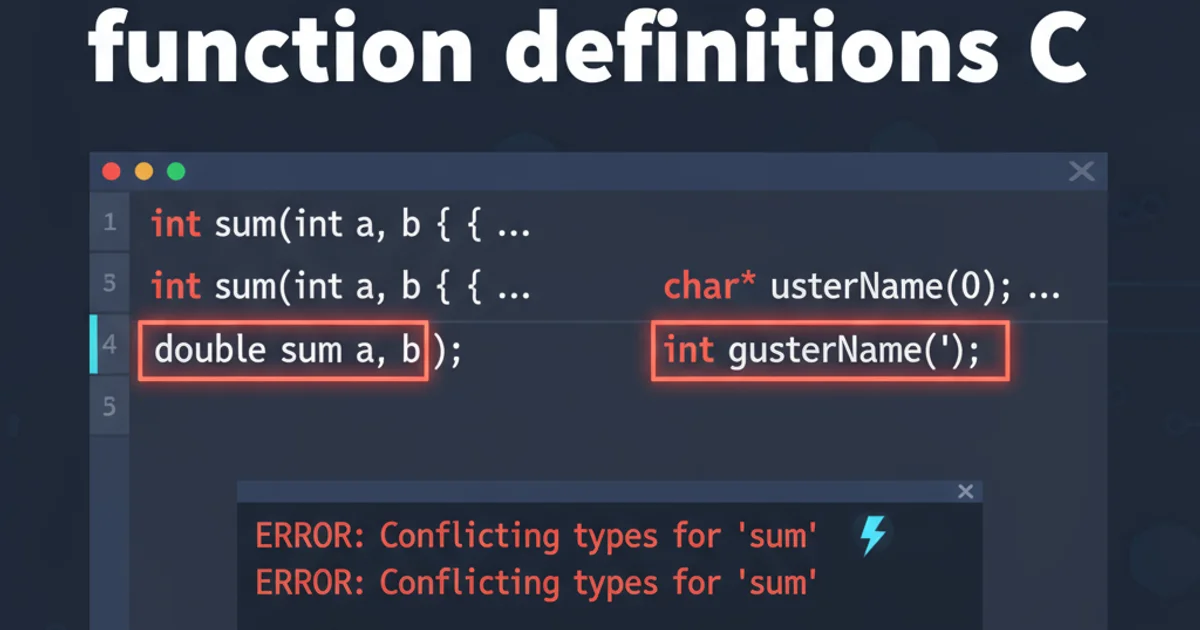ZIP / Postal Code + Country to Geo Coordinates
Categories:
Converting ZIP/Postal Codes and Country to Geo Coordinates

Learn how to accurately convert postal codes and country information into precise latitude and longitude coordinates using various geocoding services and APIs.
Geocoding is the process of converting addresses, place names, or postal codes into geographic coordinates (latitude and longitude). This capability is fundamental for a wide range of applications, including mapping, logistics, location-based services, and data analysis. While converting a full address is common, often you only have a ZIP or postal code along with a country. This article explores how to effectively perform this conversion, highlighting common challenges and solutions.
Understanding the Challenge of Postal Code Geocoding
Postal codes are designed for mail delivery, not necessarily for precise geographic location. A single postal code can cover a large area, especially in rural regions, or a very small area, like a single building, in urban centers. Furthermore, postal code formats vary significantly between countries. For example, the US uses 5-digit ZIP codes, Canada uses alphanumeric codes (e.g., A1A 1A1), and the UK uses complex alphanumeric codes (e.g., SW1A 0AA).
When converting a postal code to coordinates, you're typically looking for the centroid (geographic center) of the area that postal code covers. The accuracy of this centroid can vary depending on the geocoding service and the granularity of its underlying data. Including the country is crucial because postal codes are not globally unique; the same code might exist in different countries, referring to entirely different locations.
flowchart TD
A[Start: Input Postal Code + Country] --> B{Choose Geocoding Service}
B --> C{API Request with Postal Code & Country}
C --> D{Service Processes Request}
D --> E{Service Returns Geo Coordinates}
E --> F{Handle Response: Lat/Long}
F --> G{Error Handling: Invalid Code/Country}
G --> H[End: Coordinates or Error]General workflow for converting postal code and country to geo coordinates.
Popular Geocoding Services and APIs
Several commercial and open-source geocoding services offer APIs to convert postal codes to coordinates. Each service has its strengths, limitations, pricing models, and data coverage. Key considerations when choosing a service include accuracy, rate limits, cost, and ease of integration.
Some widely used services include:
- Google Maps Geocoding API: Offers robust geocoding with excellent global coverage. It's a paid service with a free tier.
- OpenCage Geocoding API: Provides a wrapper around various open-source geocoders, offering good global coverage and a clear pricing model.
- Nominatim (OpenStreetMap): A free, open-source geocoding service based on OpenStreetMap data. It's great for personal projects but has usage policies and rate limits that might not suit high-volume commercial applications.
- Mapbox Geocoding API: Another commercial option with good global coverage, often used in conjunction with Mapbox's mapping solutions.
- Postcodes.io (UK specific): A free API specifically for UK postal codes, offering very high accuracy for that region.
Implementing Geocoding with an API Example (OpenCage)
Let's look at a practical example using the OpenCage Geocoding API. This service is chosen for its clear documentation and good balance of features for various use cases. You'll need an API key from their website.
The basic idea is to construct a query string that includes the postal code and country, then send an HTTP GET request to the API endpoint. The API will return a JSON response containing the geocoded results, including latitude and longitude.
Python Example
import requests import json
API_KEY = 'YOUR_OPENCAGE_API_KEY' POSTAL_CODE = '90210' COUNTRY_CODE = 'US' # ISO 2-letter country code
url = f"https://api.opencagedata.com/geocode/v1/json?q={POSTAL_CODE},{COUNTRY_CODE}&key={API_KEY}"
try: response = requests.get(url) response.raise_for_status() # Raise an exception for HTTP errors data = response.json()
if data and data['results']:
first_result = data['results'][0]
latitude = first_result['geometry']['lat']
longitude = first_result['geometry']['lng']
formatted_address = first_result['formatted']
print(f"Postal Code: {POSTAL_CODE}, Country: {COUNTRY_CODE}")
print(f"Latitude: {latitude}, Longitude: {longitude}")
print(f"Formatted Address: {formatted_address}")
else:
print(f"No results found for {POSTAL_CODE}, {COUNTRY_CODE}")
except requests.exceptions.RequestException as e: print(f"API request failed: {e}") except json.JSONDecodeError: print("Failed to decode JSON response.")
JavaScript (Node.js) Example
const axios = require('axios');
const API_KEY = 'YOUR_OPENCAGE_API_KEY'; const POSTAL_CODE = 'V6B 1B1'; const COUNTRY_CODE = 'CA'; // ISO 2-letter country code
async function geocodePostalCode() {
const url = https://api.opencagedata.com/geocode/v1/json?q=${POSTAL_CODE},${COUNTRY_CODE}&key=${API_KEY};
try {
const response = await axios.get(url);
const data = response.data;
if (data && data.results && data.results.length > 0) {
const firstResult = data.results[0];
const latitude = firstResult.geometry.lat;
const longitude = firstResult.geometry.lng;
const formattedAddress = firstResult.formatted;
console.log(`Postal Code: ${POSTAL_CODE}, Country: ${COUNTRY_CODE}`);
console.log(`Latitude: ${latitude}, Longitude: ${longitude}`);
console.log(`Formatted Address: ${formattedAddress}`);
} else {
console.log(`No results found for ${POSTAL_CODE}, ${COUNTRY_CODE}`);
}
} catch (error) {
console.error(`API request failed: ${error.message}`);
}
}
geocodePostalCode();
YOUR_OPENCAGE_API_KEY with your actual API key. Never hardcode API keys directly into client-side code; use environment variables or a secure backend service for production applications.Best Practices for Geocoding Postal Codes
To ensure the best results and efficient use of geocoding services, consider these best practices:
- Always Include Country: As discussed, this is critical for disambiguation and accuracy.
- Validate Inputs: Before sending a request, ensure the postal code and country code are in the expected format. This can reduce unnecessary API calls and errors.
- Handle Rate Limits: Implement exponential backoff or other strategies to manage API rate limits gracefully. Don't bombard the service with requests.
- Cache Results: For frequently requested postal codes, cache the geocoded results locally to reduce API calls and improve performance. Be mindful of the service's caching policies.
- Error Handling: Implement robust error handling for network issues, invalid API keys, and
no results foundscenarios. - Consider Batch Geocoding: If you have a large list of postal codes, many services offer batch geocoding endpoints, which are more efficient than individual requests.
- Understand Accuracy: Be aware that postal code centroids are approximations. If you need street-level accuracy, you'll need to provide a more complete address.